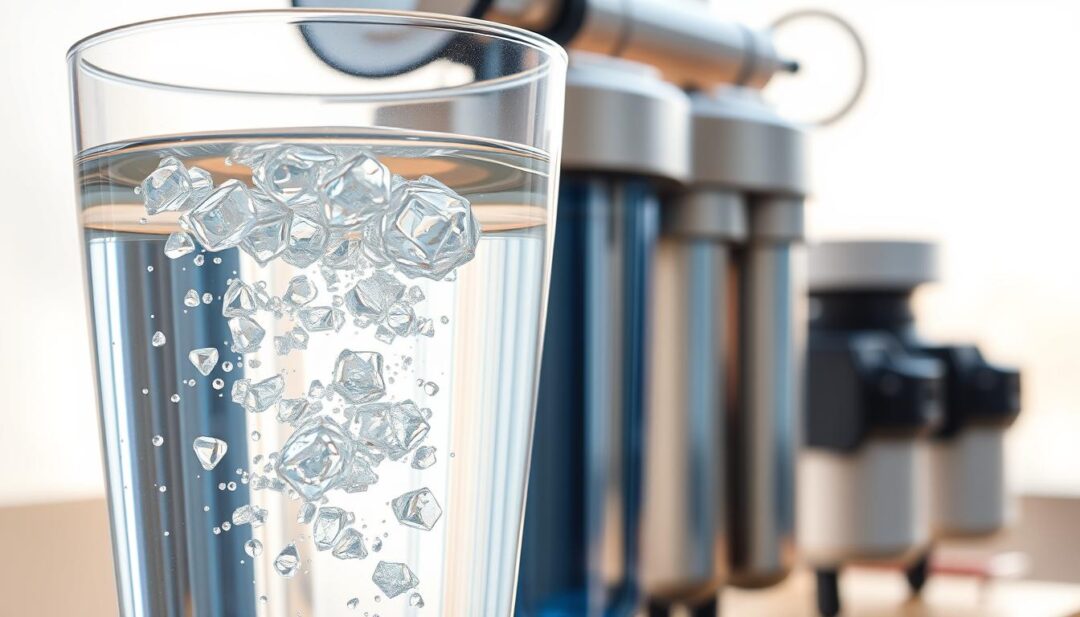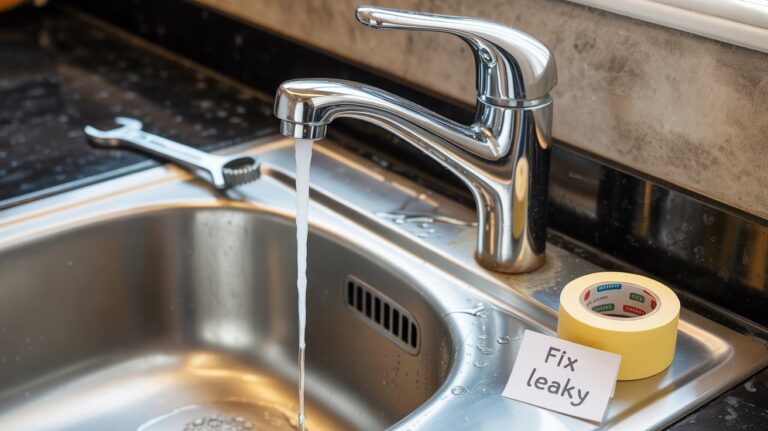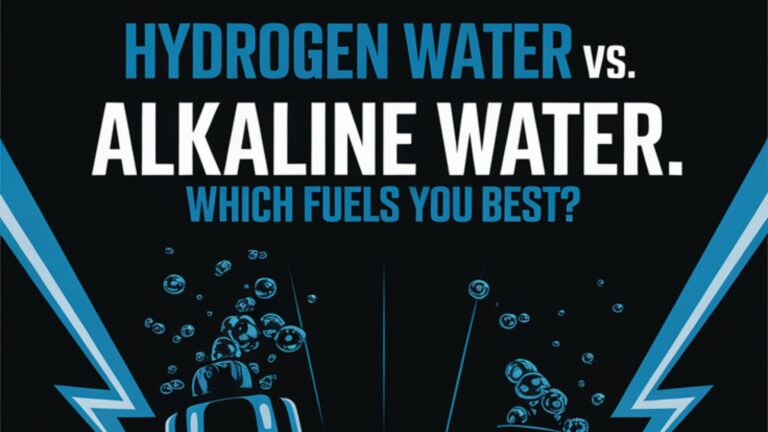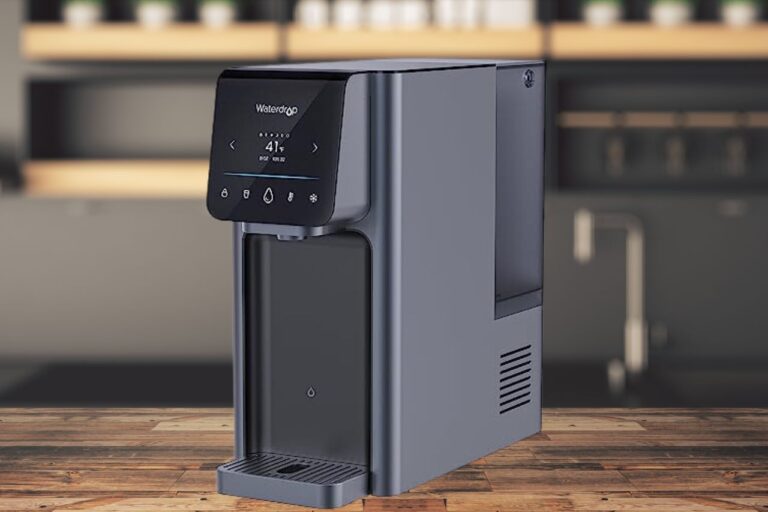Comparing Reverse Osmosis and Alkaline Water: Which is the Healthier Option?
Are you aware of the differences between the water purification methods that can significantly impact your health? With the numerous options available, choosing the right water purification method can be overwhelming.
The debate between reverse osmosis and alkaline water has sparked intense interest in the health and wellness community. While both methods aim to provide clean drinking water, they have distinct approaches and benefits.
This article will delve into the comparison between reverse osmosis and alkaline water, helping you make an informed decision about which option is healthier for you.
Key Takeaways
- Understanding the differences between reverse osmosis and alkaline water
- The benefits and drawbacks of each water purification method
- How to choose the best water purification method for your needs
- The impact of reverse osmosis and alkaline water on your health
- What to consider when deciding between reverse osmosis and alkaline water
Understanding Water Filtration and Treatment Methods
Clean drinking water is essential for human health, and various water treatment methods have been developed to achieve this goal. The importance of having access to clean drinking water cannot be overstated, as it directly impacts our overall well-being.
The Importance of Clean Drinking Water
Drinking water is a fundamental necessity, and its quality plays a significant role in maintaining public health. Contaminated water can lead to various health issues, ranging from gastrointestinal problems to more severe conditions like cancer. Ensuring that drinking water is free from harmful contaminants is crucial.
Common Water Contaminants in the US
US water supplies can be contaminated with a variety of substances, including lead, chlorine, and bacteria. These contaminants can enter the water supply through various means, such as aging infrastructure or agricultural runoff.
| Contaminant | Source | Health Impact |
|---|---|---|
| Lead | Aging pipes | Neurological damage |
| Chlorine | Water treatment process | Respiratory issues |
Evolution of Home Water Treatment
The technology behind home water treatment has evolved significantly over the years. Modern systems can remove a wide range of contaminants, providing safer drinking water.
“The right water filtration system can significantly improve the quality of drinking water, making it safer for consumption.”
As awareness about water quality issues grows, so does the demand for effective home water treatment solutions. Understanding the different methods available is key to making informed decisions about drinking water quality.
What is Reverse Osmosis Water?
Understanding reverse osmosis water is crucial for making informed decisions about home water treatment. Reverse osmosis is a water treatment process that removes contaminants using a semipermeable membrane, resulting in clean and safe drinking water.
The Science Behind Reverse Osmosis
The science behind reverse osmosis involves forcing water through a semipermeable membrane, which has tiny pores that block contaminants, allowing only clean water to pass through. This process effectively removes a wide range of impurities, including dissolved solids, bacteria, and viruses.
Components of a Reverse Osmosis System
A typical reverse osmosis system consists of several key components, including pre-filters, the semipermeable membrane, and post-filters. Pre-filters remove larger particles, protecting the membrane, while post-filters polish the water before consumption.
Types of Contaminants Removed
Reverse osmosis is effective in removing various contaminants, including heavy metals, pesticides, and nitrates. By removing these impurities, reverse osmosis water provides a cleaner and healthier drinking option.
The benefits of reverse osmosis water include improved taste and odor, reduced risk of waterborne illnesses, and a decrease in the overall contaminant load in drinking water.
What is Alkaline Water?
The concept of alkaline water revolves around its higher pH level compared to regular drinking water. Alkaline water is characterized by its alkalinity, which is measured on the pH scale.
The pH Scale and Water Alkalinity
The pH scale ranges from 0 to 14, with 7 being neutral. Alkaline water typically has a pH of 8 or 9. The higher pH is often associated with the presence of minerals such as calcium and magnesium.
Natural vs. Artificially Alkalinized Water
Alkaline water can occur naturally, as in the case of spring water that passes through mineral-rich rocks. Alternatively, water can be artificially alkalinized through electrolysis or by adding alkaline minerals.
How Alkaline Water is Produced
Alkaline water production involves either natural processes or technological interventions. Naturally, alkaline water is produced as it flows through mineral-rich environments. Artificially, it is produced using water ionizers or by adding minerals.
| Characteristics | Natural Alkaline Water | Artificially Alkalinized Water |
|---|---|---|
| Source | Natural Springs | Tap Water or Purified Water |
| pH Level | Typically 8 or 9 | Variable, often 8 or 9 |
| Mineral Content | Rich in Calcium and Magnesium | May contain added minerals |
Health Benefits of Reverse Osmosis Water

The health benefits of reverse osmosis water are multifaceted, primarily due to its advanced filtration process. Reverse osmosis effectively removes a wide range of contaminants, making it a reliable choice for clean drinking water.
Contaminant Removal Capabilities
Reverse osmosis systems are designed to capture contaminants as small as 0.0001 microns, including dissolved solids, bacteria, viruses, and heavy metals. This comprehensive removal capability ensures that the water is not only clean but also safe for consumption.
Protection Against Waterborne Illnesses
By removing pathogens and other contaminants, reverse osmosis water significantly reduces the risk of waterborne illnesses. This is particularly important for households with vulnerable individuals who may be more susceptible to waterborne diseases.
Benefits for Sensitive Populations
For individuals with weakened immune systems, such as the elderly, pregnant women, and young children, reverse osmosis water provides an additional layer of protection. The purity of the water can help mitigate health risks associated with contaminated water supplies.
Potential Drawbacks of Reverse Osmosis Water
The use of Reverse Osmosis for water purification has several potential downsides. While it effectively removes contaminants, it also has some significant drawbacks that need to be considered.
Mineral Removal Concerns
One of the primary concerns with Reverse Osmosis is its ability to remove not just harmful contaminants, but also beneficial minerals from the water. This can result in water that is very pure but lacks essential minerals that are important for health.
Environmental Considerations
The environmental impact of Reverse Osmosis systems is another significant concern. These systems require energy to operate and can have a carbon footprint, especially if the energy used is not from renewable sources.
Water Waste Issues
Reverse Osmosis systems are also known to generate a significant amount of wastewater. For every gallon of purified water produced, several gallons can be wasted. This is a considerable issue, especially in areas where water is scarce.
| Aspect | Reverse Osmosis |
|---|---|
| Mineral Removal | Removes both harmful contaminants and beneficial minerals |
| Environmental Impact | Requires energy, potentially contributing to carbon footprint |
| Water Waste | Generates significant wastewater |
Understanding these drawbacks is crucial for making informed decisions about water purification methods. While Reverse Osmosis has its benefits, its potential downsides need to be weighed against its advantages.
Health Claims of Alkaline Water
Alkaline water has been touted for its numerous health benefits, sparking interest among consumers seeking a healthier hydration option. Proponents claim that alkaline water offers several advantages over regular drinking water, including antioxidant properties and the ability to neutralize acidity.
Antioxidant Properties
One of the primary health claims associated with alkaline water is its antioxidant properties. Antioxidants play a crucial role in combating free radicals in the body, potentially reducing oxidative stress and inflammation. Alkaline water is believed to contain negative oxidation-reduction potential (ORP), which is thought to contribute to its antioxidant effects.
Acid-Neutralizing Effects
Another significant claim is that alkaline water can help neutralize acidity in the body. The idea is that by consuming water with a higher pH level, individuals can counteract the acidic environment that some believe contributes to various health issues. However, the body’s natural pH regulation mechanisms are robust, and it’s unclear whether alkaline water significantly impacts overall acidity.
Athletic Performance Enhancement
Some proponents suggest that alkaline water can enhance athletic performance by improving hydration and reducing lactic acid buildup. While this sounds promising, scientific evidence supporting these claims is limited, and more research is needed to fully understand any potential benefits.
Anti-Aging and Disease Prevention Claims
Additionally, alkaline water is sometimes linked to anti-aging and disease prevention. Advocates argue that its antioxidant properties can help mitigate the visible signs of aging and reduce the risk of certain diseases. However, these claims are largely anecdotal and require further scientific validation.
In conclusion, while alkaline water is associated with several health claims, it’s essential to approach these assertions with a critical perspective, considering both the potential benefits and the limitations of current scientific understanding.
Scientific Evidence Behind Alkaline Water Claims
As consumers increasingly turn to alkaline water, it’s essential to examine the research behind its purported benefits. The debate surrounding alkaline water’s health advantages is ongoing, with various studies and expert opinions offering insights into its effectiveness.
Research Studies and Findings
Several studies have investigated the health implications of alkaline water. For instance, a study published in the Journal of the International Society of Sports Nutrition found that alkaline water may improve hydration in athletes. However, more research is needed to fully understand its benefits.
Expert Opinions from Medical Professionals
Medical professionals have varying views on alkaline water. Some experts, like Dr. Andrew Weil, suggest that alkaline water may have antioxidant properties, while others argue that its benefits are overstated. As Dr. Weil notes, “Alkaline water may help neutralize acidity in the body, but more research is needed to confirm its effectiveness.”
“The health benefits of alkaline water are largely anecdotal and require further scientific validation.”
Purity Comparison
When comparing alkaline water to reverse osmosis water, purity is a critical factor. Reverse osmosis removes contaminants, but it also strips water of beneficial minerals. Alkaline water, on the other hand, may contain minerals that contribute to its alkalinity.
Mineral Content Analysis
The mineral content in alkaline water can vary significantly depending on the source. Some alkaline waters are naturally rich in minerals like calcium and magnesium, which are essential for health.
Taste and Satisfaction Factors
The taste of alkaline water is often described as smoother and more refreshing than regular water. This subjective benefit can influence consumer satisfaction and preference for alkaline water over reverse osmosis water.
Water Quality for Specific Health Conditions

The quality of water one consumes can significantly impact various health conditions, necessitating careful consideration. Different health conditions require specific water quality considerations to manage or alleviate symptoms.
Recommendations for Digestive Issues
For individuals suffering from digestive issues such as irritable bowel syndrome (IBS), the type of water consumed can play a significant role in symptom management. Reverse osmosis water is often recommended due to its purity and low mineral content, which can be less irritating for sensitive stomachs.
On the other hand, some proponents of alkaline water suggest that its potential to neutralize stomach acid could offer relief. However, it’s crucial to consult healthcare professionals before making any significant changes to one’s hydration routine, especially for those with chronic digestive issues.
Considerations for Kidney Health
Individuals with kidney health concerns need to be particularly mindful of their water intake. Kidney patients are often advised to limit their consumption of certain minerals, which can be present in varying levels in different types of water.
Reverse osmosis water, being very pure, might be beneficial in reducing the intake of unwanted minerals. Nonetheless, it’s essential for kidney patients to consult with their healthcare provider to determine the best water choice for their specific condition.
Water Choices for Athletic Performance
Athletes often seek out water that can enhance their performance and aid in recovery. Alkaline water is sometimes chosen for its purported benefits in reducing lactic acid buildup. However, the scientific evidence supporting this claim is limited.
Immune System Support
For immune system support, the purity of the water is paramount. Reverse osmosis water is effective in removing pathogens and contaminants that could potentially weaken the immune system.
Regardless of the type of water chosen, ensuring it is clean and free from harmful contaminants is crucial for overall health and immune function.
Cost and Maintenance Considerations
Reverse osmosis and alkaline water systems differ significantly in terms of initial cost, maintenance needs, and environmental footprint. Understanding these differences is crucial for consumers to make an informed decision that aligns with their budget and environmental values.
Initial Investment Comparison
The initial cost of a water filtration system can vary widely based on the technology, brand, and features. Reverse osmosis systems are often more expensive upfront due to their complex filtration process, which can range from $200 to over $1,000. In contrast, alkaline water systems can start at a lower price point, typically between $50 to $500, depending on whether they are pitcher-based, faucet-mounted, or countertop models.
| System Type | Initial Cost Range |
|---|---|
| Reverse Osmosis | $200 – $1,000+ |
| Alkaline Water | $50 – $500 |
Long-term Maintenance Requirements
Maintenance costs and frequency can significantly impact the total cost of ownership. Reverse osmosis systems require regular filter replacements, which can cost between $50 to $200 annually, depending on the model and usage. Alkaline water systems also require filter replacements, but the cost can be lower, typically ranging from $20 to $100 per year.
It’s essential to consider these ongoing expenses when evaluating the overall cost-effectiveness of a water filtration system.
Environmental Impact
The environmental footprint of water filtration systems is another critical consideration. Reverse osmosis systems are known to waste a significant amount of water during the filtration process, which can be a concern for areas with water scarcity issues.
Energy Consumption Analysis
Both reverse osmosis and alkaline water systems consume energy, primarily for pumping and filtration processes. However, reverse osmosis systems generally require more energy due to the high pressure needed to force water through the semi-permeable membrane.
By carefully evaluating the initial investment, long-term maintenance requirements, and environmental impact, consumers can make a more informed decision about which water filtration system best suits their needs and values.
Testing and Verifying Your Water Quality
Regular water quality testing is fundamental to ensuring that your drinking water meets the highest standards of safety and purity. This process involves several steps, from simple home testing methods to comprehensive professional analyses.
Home Testing Methods
Home testing kits are a convenient first step in assessing your water quality. These kits can test for various contaminants, including lead, chlorine, and nitrates. While they provide a good initial indication, their accuracy can vary.
Common Home Testing Methods:
- pH level testing
- Chlorine level testing
- Lead contamination testing
Professional Water Analysis
For a more detailed and accurate assessment, professional water analysis is recommended. Laboratories use advanced equipment to detect a wide range of contaminants, including bacteria, viruses, and heavy metals.
Benefits of Professional Analysis:
- Comprehensive contaminant detection
- Accurate quantification of contaminants
- Guidance on appropriate treatment solutions
Understanding Water Quality Reports
Water quality reports provide detailed information about the contaminants present in your water and their concentrations. Understanding these reports is crucial for determining the necessary treatment.
| Contaminant | Maximum Allowable Level | Detected Level |
|---|---|---|
| Lead | 15 ppb | 10 ppb |
| Chlorine | 4 ppm | 2 ppm |
| Nitrates | 10 ppm | 5 ppm |
Signs Your Water Treatment System Needs Attention
Regular monitoring of your water treatment system is essential to ensure it operates effectively. Signs that your system may need attention include:
- Changes in water taste or odor
- Reduced water pressure
- Visible signs of contamination
Conclusion: Making the Right Choice for Your Health
When it comes to choosing between reverse osmosis and alkaline water, understanding the health implications of each is crucial. Both options have their benefits and drawbacks, which have been discussed in detail throughout this article.
Reverse osmosis water is known for its contaminant removal capabilities, making it a great option for those with compromised immune systems. On the other hand, alkaline water is believed to have antioxidant properties and acid-neutralizing effects, although the scientific evidence supporting these claims is limited.
To determine the best water filtration system for your needs, consider factors such as your local water quality, health status, and personal preferences. Testing and verifying your water quality can also help you make an informed decision.
Ultimately, the best choice between reverse osmosis and alkaline water depends on your individual circumstances. By weighing the pros and cons of each option, you can select the best water filtration system to support your overall health and well-being.







